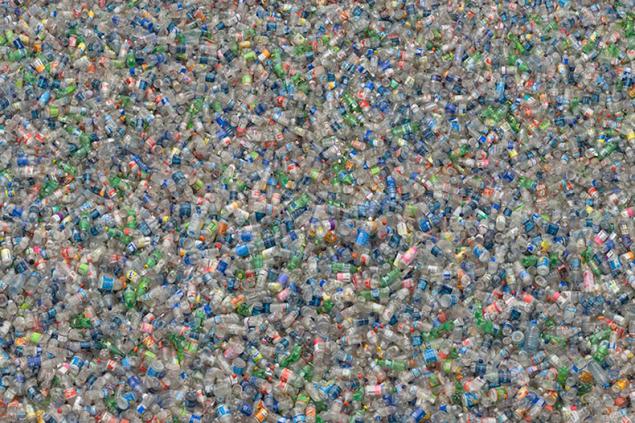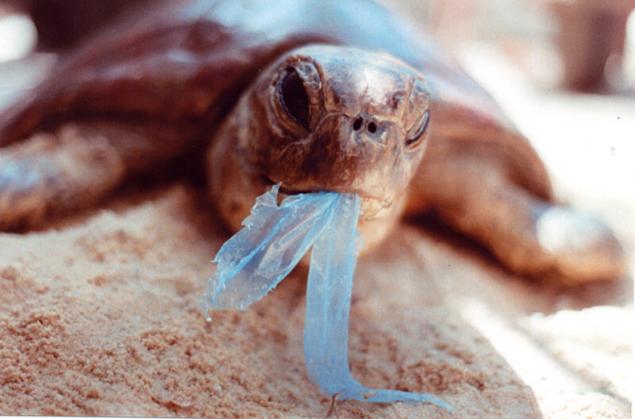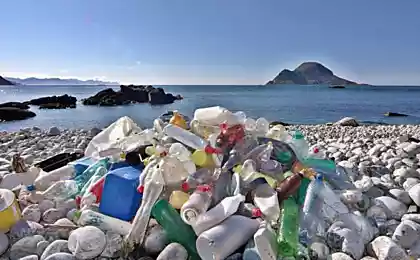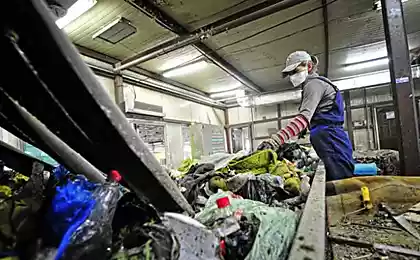402
"Loop" the plastic to stop it there
Foundation Ellen MacArthur proposes to establish a coordination group of experts, which should at the global level to solve the problem of reusing plastic. If plastic will not change its production by 2050 will double compared to current levels and in the oceans the mass of plastic exceeds the weight of the fish.
A study made by the experts of the International economic forum Foundation and the Ellen MacArthur, with the support of consultants McKinsey. shows that new technologies can leave plastic in the production chain, and he never will be in the ocean or soils.

As noted in the study, the most important reason to do with plastic is that over the past 50 years the use of plastics has increased by 10 times and that number will double in the past 20 years.
“Finish off” those who still do not understand why plastics have something to do, scientists with the awful forecast — by 2050, the mass of plastic in the oceans exceeds the mass of living fish as well. Birds, whales, turtles and other sea animals eat the plastic, which kills them, but the matter does not end there. Man eating fish, poisoned by the plastic and harm their health. Long-term effects of tiny plastic particles that enter the human body, no one has studied but it is unlikely it is positive.
The reduction of plastic waste and slow down climate change. The plastics production in 2050 will go the fifth part of produced oil that is plastic will be responsible for 15% of greenhouse gases trapped in the Earth's atmosphere. A decrease in the production of plastics will reduce the need for oil, and thus reduce emissions.

According to survey data, 95% of the plastic that cost the world economy $ 120 billion, is used once and is excluded from the production cycle. Imagine that you year built the house, and then took and burned it. Not too rational?
Almost one-third of all plastic packaging “runs away” from collecting garbage and not recycled, but it falls into the ocean and contaminating the city's infrastructure. The cost of the harm this process, taking into account CO2 emissions in production, is about $ 40 billion annually, exceeding the total profits of all manufacturers of plastic packaging.
Despite the obviousness of the problem, solve it at the level of individual participants of the “plastic” chain difficult. It is global in nature and best of all you can't see at the level of one participant in the process. Because of this, many innovations and new technologies are drowning in a sea of uncoordinated actions.
Finding solutions is also hampered by the lack of standards, common approaches to labeling, collection, sorting and recycling plastic.
Worries add new packaging materials that come on the mass market, but the recycling system which has not yet designed or implemented.
At the same time, hundreds, if not thousands, of local initiatives aimed at recycling and reuse of plastic.
Due to the current situation, the Foundation Ellen MacArthur considers it necessary to establish an independent group of facilitators that will join together the plastic manufacturers, governments, processors and NGOs.
The group's goal to define the direction and develop common standards, so that individual initiatives and innovations, it was possible to re-implement and to scale.
Author: Natalia Paramonova
Source: look.bio/post/show/302
A study made by the experts of the International economic forum Foundation and the Ellen MacArthur, with the support of consultants McKinsey. shows that new technologies can leave plastic in the production chain, and he never will be in the ocean or soils.

As noted in the study, the most important reason to do with plastic is that over the past 50 years the use of plastics has increased by 10 times and that number will double in the past 20 years.
“Finish off” those who still do not understand why plastics have something to do, scientists with the awful forecast — by 2050, the mass of plastic in the oceans exceeds the mass of living fish as well. Birds, whales, turtles and other sea animals eat the plastic, which kills them, but the matter does not end there. Man eating fish, poisoned by the plastic and harm their health. Long-term effects of tiny plastic particles that enter the human body, no one has studied but it is unlikely it is positive.
The reduction of plastic waste and slow down climate change. The plastics production in 2050 will go the fifth part of produced oil that is plastic will be responsible for 15% of greenhouse gases trapped in the Earth's atmosphere. A decrease in the production of plastics will reduce the need for oil, and thus reduce emissions.

According to survey data, 95% of the plastic that cost the world economy $ 120 billion, is used once and is excluded from the production cycle. Imagine that you year built the house, and then took and burned it. Not too rational?
Almost one-third of all plastic packaging “runs away” from collecting garbage and not recycled, but it falls into the ocean and contaminating the city's infrastructure. The cost of the harm this process, taking into account CO2 emissions in production, is about $ 40 billion annually, exceeding the total profits of all manufacturers of plastic packaging.
Despite the obviousness of the problem, solve it at the level of individual participants of the “plastic” chain difficult. It is global in nature and best of all you can't see at the level of one participant in the process. Because of this, many innovations and new technologies are drowning in a sea of uncoordinated actions.
Finding solutions is also hampered by the lack of standards, common approaches to labeling, collection, sorting and recycling plastic.
Worries add new packaging materials that come on the mass market, but the recycling system which has not yet designed or implemented.
At the same time, hundreds, if not thousands, of local initiatives aimed at recycling and reuse of plastic.
Due to the current situation, the Foundation Ellen MacArthur considers it necessary to establish an independent group of facilitators that will join together the plastic manufacturers, governments, processors and NGOs.
The group's goal to define the direction and develop common standards, so that individual initiatives and innovations, it was possible to re-implement and to scale.
Author: Natalia Paramonova
Source: look.bio/post/show/302






















